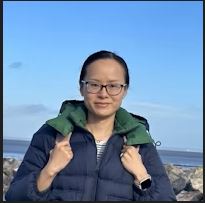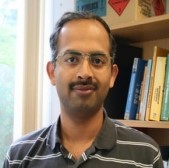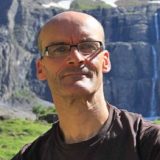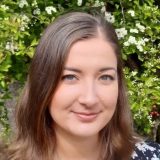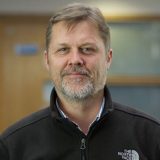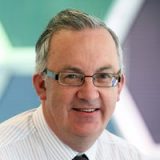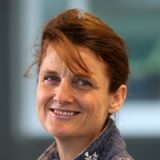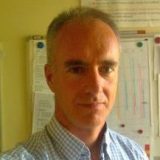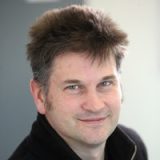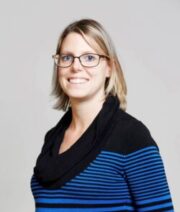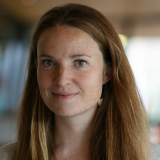Lu’s research focuses on simulating and assessing extreme hydrometeorological events like floods and heat waves, particularly in relation to climate change. Lu employs satellite remote sensing, environmental modelling, and machine learning to analyse urban and watershed contexts.
Prakash Kripakaran
Prakash is academic lead for the civil and structures research group at Exeter. His research interests are broadly in the design and management of civil infrastructures, such as bridges. He has significant experience in: the experimental and numerical modelling of flow and scour (erosion) around hydraulic structures such as bridge piers; the use of applied computing techniques including Building Information Modelling (BIM) for construction automation and design; the development of finite element modelling-based and data-driven strategies for interpreting measurements from bridge structural health monitoring; and the application of optimization methods for structural design problems (e.g. design of trusses and moment-resisting steel frames).
Nina Wedell
Nina is an evolutionary biologist with research interests focused on the evolutionary ecology of sex. She has worked extensively on various aspects of sexual selection and sexual conflict, in particular on the role of selfish genetic elements in reproductive biology.
Gabriel Yvon-Durocher
Gabriel researches the effects of environmental change on the structure and functioning of ecosystems (which comprise groups of species, their interactions with one another and with the physical and chemical environment in which they exist). His work spans multiple levels of biological organisation, from sub-cellular biochemistry to the dynamics of ecosystems, and searches for similarities across aquatic and terrestrial systems. The ultimate goal of his work is to develop a predictive ‘tool box’ to forecast how ecosystems will change in a world increasingly dominated by humans and the oceans.
Rod Wilson
Rod is a comparative physiologist. He aims to provide a more holistic understanding of homeostasis in aquatic animals, both fish and invertebrates, freshwater and marine. This includes studies of how anthropogenic and natural environmental changes impact upon physiology and behaviour in the wild, and how to use physiology to help improve the sustainability of aquaculture (including animal growth efficiency and health, pathogen/parasite resistance, and farm effluent output). He also studies the reverse process: how physiological processes in aquatic animals can influence the regional and global environment in freshwater and the oceans.
Charles tyler
Charles is a reproductive physiologist and environmental biologist. His research interests include mechanisms of endocrine disrupting chemicals and nanoparticle ecotoxicology and assessing population level effects of contaminants in wildlife (primarily fish).
Jamie stevens
Jamie is an evolutionary biologist with interests in molecular ecology, population genetics and evolution. Two key strands are fish population genetics, and parasite systematics and evolution. He focuses on questions in the field of population/conservation genetics, with particular emphasis on applying knowledge of population genetic process to the management and conservation of Atlantic salmon and trout, and a variety of marine organisms, including sea fans and lobster, with the aim of understanding gene flow and connectivity in relation to the design and designation of marine protected areas.
Eduarda santos
Eduarda is an environmental biologist investigating reproductive development and function and the susceptibility of these processes to disruption by environmental stressors. Her research focuses on fish and has ranged from investigating the endocrine control of reproduction to addressing the population level effects of chemical exposure for wild fish, using systems biology strategies.
Aimee Murray
Aimee’s research area is antimicrobial resistance in the environment, particularly due to anthropogenic impacts in wastewater and receiving environments. This includes evolution and ecology of antimicrobial resistance, direct selection at low concentrations and co-selection by other antimicrobials and non-antimicrobial compounds, environmental risk assessment, and developing and validating the novel ‘SELECT’ method for rapid determination of selective concentrations of antibiotics and environmental surveillance of antimicrobial resistance. She has a long-standing collaboration with AstraZeneca and engaging with industry and policy makers.
will gaze
Will research is in antimicrobial resistance in farmed and natural environments, including major elements of environmental sampling and wide-ranging analytical methodologies. This includes AMR evolution in the environment, using in situ and in vivo experiments, landscape scale dissemination of AMR and human exposure and transmission studies. Projects are divided into three main themes: ecology, evolution and public health perspectives. These map onto those identified in successive WHO, EU and UK AMR action plans facilitating interdisciplinary research approaches and joined up thinking.
Hefin Jones
Hefin’s research examines trophic interactions in terrestrial and aquatic environments (and the effect of climate change on these); soil biodiversity; population and community ecology.
Ian Vaughan
Ian’s research areas include community ecology; long term ecological changes in British river systems; data analysis and modelling; multiple stressors; land use, climate, hydromorphology and river organisms and trophic interactions.
Isabelle Durance
Isabelle’s specialist research covers freshwater ecosystems; biodiversity; ecosystem services; climate change; environmental change, landscape ecology and catchment science.
Jo Cable
Jo’s research covers experimental parasitology; host-parasite dynamics; fish parasites; ecosystem impacts of invasive species; water-borne human pathogens and zoonotic infections; imaging; molecular ecology; cell biology and fieldwork with aforementioned research areas.
Pablo Ouro Barba
Pablo’s main area of expertise relates to the computational modelling in offshore renewable energy (tidal stream turbines and wind turbine farms); turbulence in environmental flows and hydraulics; or multi-phase flows: Eulerian-Eulerian (free-surface) and Eulerian-Lagrangian (sediments). He also works on the development of river turbine arrays for developing countries.
Ross Brown
Ross’ research focuses on refining environmental risk assessment approaches to safeguard aquatic ecosystems from pollution and to facilitate the sustainable development of aquaculture.
Peter Kille
Peter’s primary research focuses on omics – genomics, proteomics, metabolomics and heavy metals in biological systems.
His research includes diatom assay, reservoir ecology and cyanobacteria population structure, nutrients , eDNA and the ecology of sand filters and chemical breakdown.
Siân Griffiths
Siân’s research focuses on the behavioural ecology and the evolution of fish schooling; consequences of climate change for fish behaviour and river ecology; ecosystem quality and the distribution of fish in rivers.
Steve Ormerod
With a research focus on global change effects on freshwater organisms and ecosystems; river biodiversity and ecosystem services Steve is a leading specialist in riverine and wetland bird ecology.
Guy Howard
Guy’s research interests cover the resilience of sanitation systems to climate change, decentralised treatment systems, barriers to disease transmission and burden costs, cryptosporidium genomics, water and environmental health, focus on smaller rural communities in UK and nationally, politics around transboundary rivers, and hydropower.
Catherine Wilson
Catherine’s research focuses on environmental hydraulics, including both natural flood management methods and traditional hard engineering methods. She also looks at fish swimming hydrodynamics and sediment transport dynamics, including hydropower turbines.
Andrew Weightman
Andrew’s research includes work on microbiomes, microbes and informatics.
Charlotte Lloyd
Charlotte’s research is driven by a passion to address key questions surrounding the origins and fate of human and agricultural wastes in terrestrial systems, particularly in relation to their delivery from land to water bodies. Her work spans a wide variety of scales ranging from chemical, physical and biological processes ultimately integrated to the catchment level.
Her approach is to use cutting-edge analytical techniques, including molecular scale chemistry to trace hydrological and sediment pathways and to enhance understanding of the transport of organic nutrients and anthropogenic organic compounds in the environment. To date work has focussed on the impact of inputs from agriculture, such as fertilisers and other human contributions, including sewage treatment works. She uses both laboratory experimentation and field data collection and data modelling techniques, as this offers unique opportunities for exploring the impacts of various agricultural practices on the environment.
Kate Baker
Based in the Centre for Water Systems, Kate is the lead for community engagement on two European Union funded projects, NextGen (Living Labs for Circular Economy in the Water Sector) and LOTUS (International Cooperation for Low-cost innovative Technology for water quality monitoring and water resources management for Urban and rural water Systems in India).

